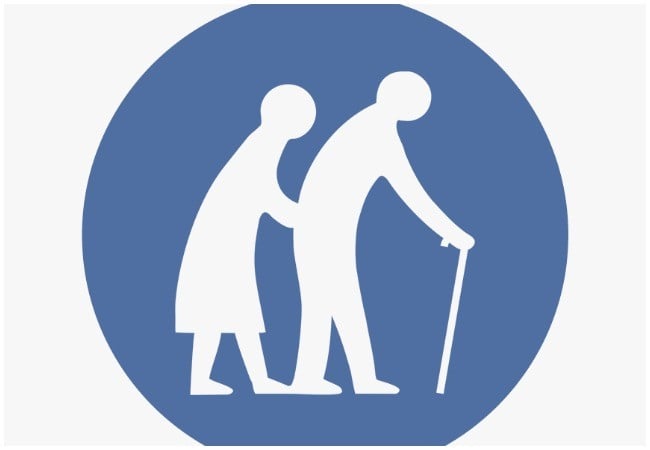
Janet Ogundepo
The Oyo State Coordinator of the Coalition of Societies for the Rights of Older Persons in Nigeria, Olayinka Ajomale, has lamented that older persons in the country are neglected and not ageing healthily.
He highlighted the prevalent neglect by society, decrying societal perceptions that view older persons as burdens.
Ajomale, who is a member, Board of Trustees of the coalition, in an earlier interview with PUNCH Healthwise, also stated that the mass emigration of younger Nigerians and their families has increased the issues of loneliness and neglect of senior citizens.
PUNCH Healthwise reported how the mass emigration of young Nigerians is affecting the elderly and reflected their struggle with loneliness despite supporting their children’s aspirations to move abroad.
Statistics from a global data platform, Statista, indicated that Nigeria’s elderly population, aged 60 years and older, stood at 9.4 million out of 206 million.
However, data from the World Bank in 2022 estimated Nigeria’s population aged 65 years and above at 6.5 million.
On May 1, 2020, the United Nations Secretary-General, António Guterres, acknowledged the value of older persons, describing them as “invaluable sources of knowledge and experience and have much to contribute towards peace, sustainable development, and protecting our planet.”
The UN also declared 2021-2030 as the Decade of Healthy Ageing to improve older people’s well-being, families, and communities.
Despite this global initiative, older persons in Nigeria continue to age unhealthily due to the absence of a functional national policy for their welfare.
Several news reports have detailed the struggles of retired government workers, some of whom have died while awaiting their retirement benefits.
Furthermore, a publication titled, “Healthcare for Older Persons, A Country Profile: Nigeria,” revealed that older patients are often admitted to wards designated for young adults in some hospitals, reflecting a lack of specialised care for the elderly.
Commenting on the reasons for unhealthy ageing among older persons, Ajomale said, “Lack of access to quality healthcare services led to self-medication and access to fake drugs. Self-medication does not bring good health to older persons, the same thing as access to fake drugs, and there is little control over it.
“This is what is happening in the rural areas where there are more elderly people than in the urban areas. They have more access to quacks and traditional health attendants.
“Another thing is the poverty level in older persons. By the time you are retiring, you have a low income and for a society like ours that does not have social security for older persons, how many people are on pension? Even the pension is inadequate and it doesn’t come in as when due. This does not make them eat healthily.”
He further noted that the breakdown of the extended family was fuelled by the massive relocation of young adults overseas, known as japa syndrome.
Speaking further on the perceptions of old age in Nigeria, the geriatric social worker said, “I would not say it is because of fear but the mindset that people have of believing in the present rather than in the future. Also, there is the mindset that the period of old age is a period of rest and unproductivity, so society sees the older person as having done their part and needs to take the backseat. They don’t see them as an asset to the society. That way, children, women, and youths are given more priority while the elderly are put aside.”
Although Ajomale commended the gradual acceptance of older citizens as valuable assets, he stated that the progress was slow.
He said, “If you don’t see the older person as an asset, then you are not likely to do them any good. When they get to age 60, they are told to go and sit down because they have done their bit. Meanwhile, some of them are productive into their 80s.
“Thank God for the increase in retirement age, before now, it used to be 65 years. A Professor and a judge in the Federal High Court or Supreme Court can work and make rulings up to the age of 70 because they are still productive. We are gradually treating the older persons more as an asset than a burden but it is going at a slow pace.”
Copyright PUNCH
All rights reserved. This material, and other digital content on this website, may not be reproduced, published, broadcast, rewritten or redistributed in whole or in part without prior express written permission from PUNCH.
Contact: [email protected]









